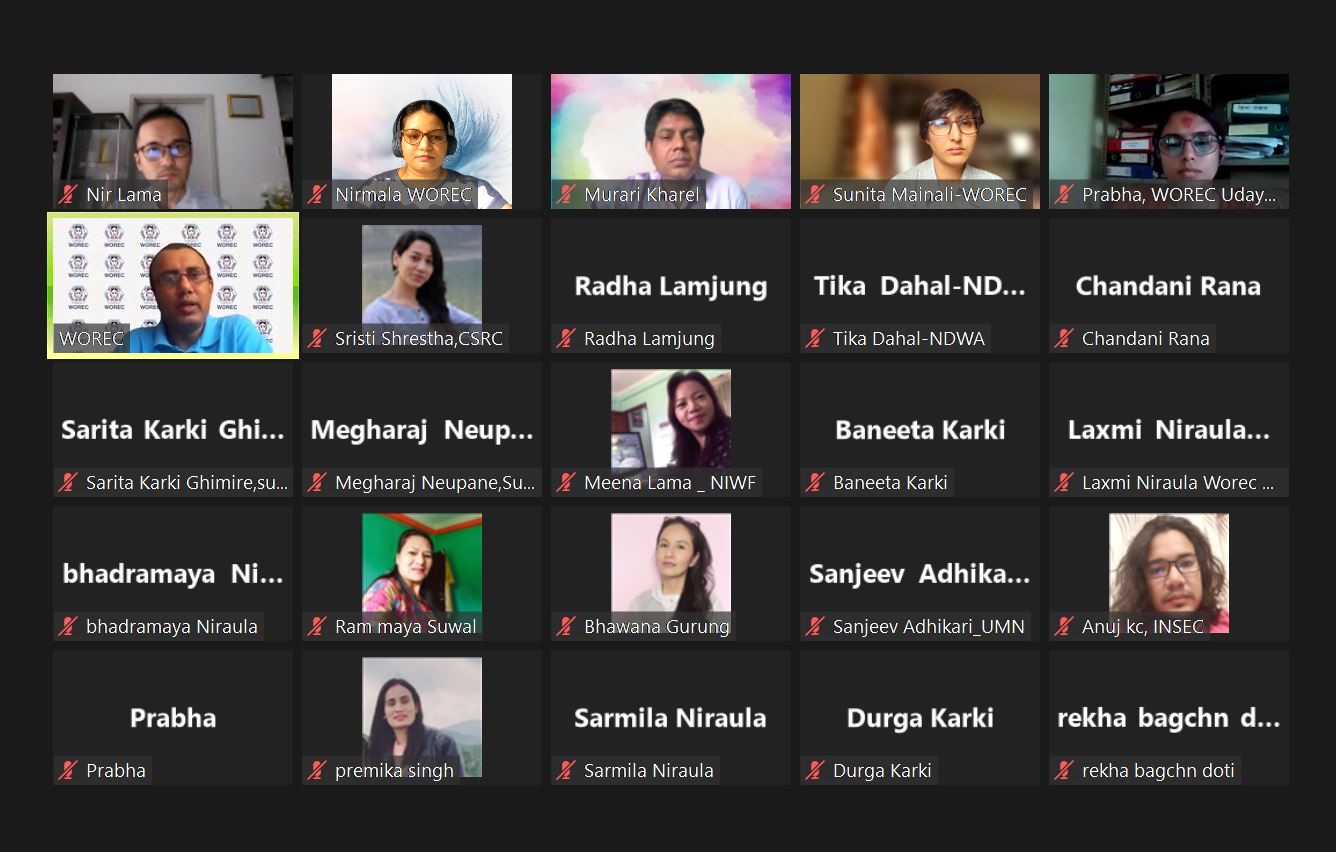
WOREC, in collaboration with FORUM ASIA, organized 3rd installment of Holistic Security Training for Human Rights Defenders (HRDs) in Nepal from August 22nd to August 25th, 2021. The training aimed to enhance the capacities of the HRDs through the exchange of experiences of trainers and participants on security and protection measures and ways to strengthen their well-being while carrying out activities to promote and defend human rights in their respective communities and working areas.
Twenty-four participants, including twenty females and four males from seven provinces, participated in the training. The participants were HRDs working for women's rights, child rights, indigenous people's rights, land rights, rights of people with disabilities, and Dalit rights, while three were journalists.
Throughout four-day online training, HRDs, together with the facilitators, explored issues such as the concept and components of holistic security principles and specific strategies and tools that they can utilize and incorporate into their works for their security and well-being, including the protection of their data and privacy.
At the outset of the training, specific challenges faced by gender minorities' defenders, women human rights defenders, and Dalit HRDs were identified and discussed during the session, as they are more vulnerable to risks while carrying out human rights advocacy activities.
"HRDs risk their lives fighting injustice in the community and society. We are often subjected to violations of our human rights and are the target of harassment, defamation, death threats, as well as restrictions on our freedoms of movement, expression, association, and assembly," said HRD who participated at the training.
In the training, the HRDs learned to perform the task of risk assessment followed by developing security plans for their organization with the support and advice of the facilitators. Furthermore, they assessed their security situations and developed risk and vulnerability reduction strategies and tactics.
According to another participant, the training has helped her enhance her capacities to reflect, learn, and take preventive measures to improve their security and protection and their resilience and abilities to respond during times of "crisis." "Along with getting the platforms to share our experiences as HRDs, tasks of risk assessment assigned to us throughout the training have made me realize how empowered I have become on issues related to "Safety First," said the participant.
The participants also analyzed that human rights defenders need to define security and build mutual solidarity and support into their groups, organizations, and movements. Likewise, the facilitators also stressed how it is important to integrate elements of well-being into security considerations of HRDs since well-being is central to carrying out the works of defenders effectively as well as to their ability to think objectively, analyze and strategize.
"Security also includes being physically and emotionally healthy and sustaining themselves while continuing to do their work and carrying out the necessary analysis and planning along with the maintain their identity, protecting themselves from getting trapped online and protect their data from getting damaged and stolen," said Murari Kharel, Acting Secretary of National Human Rights Commission, who was one of the facilitators in the training.